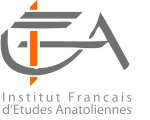ANNONCES, CONFERENCES, JOURNEES D’ETUDES
20-21 Octobre 2011, Institut National d’Histoire de l’Art – Paris
4èmes Rencontres internationales des doctorants en études byzantines
Fortes de leur succès et pour la quatrième année consécutive, les Rencontres internationales des doctorants en études byzantines auront lieu les 21 et 22 octobre 2011. Cette IVe édition s’inscrit désormais dans le cadre de l’Association des Étudiants du Monde Byzantin (AEMB) qui a vu le jour en 2010 à la suite des précédentes rencontres.
